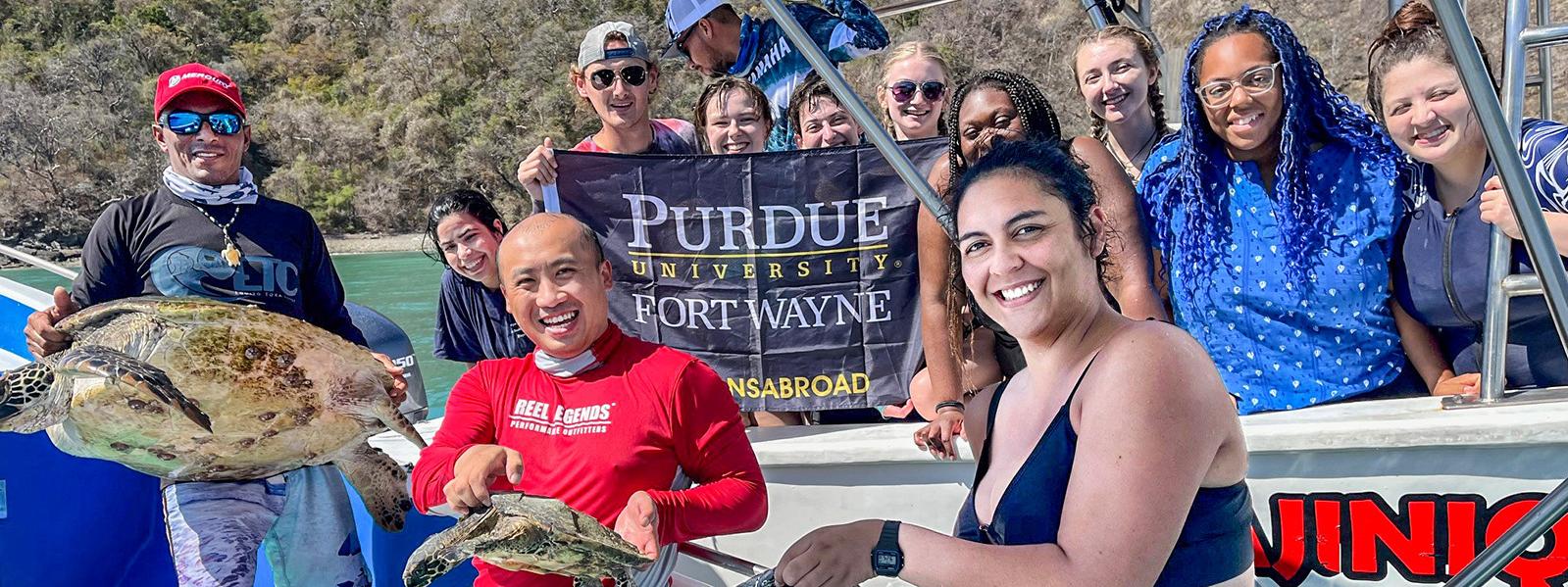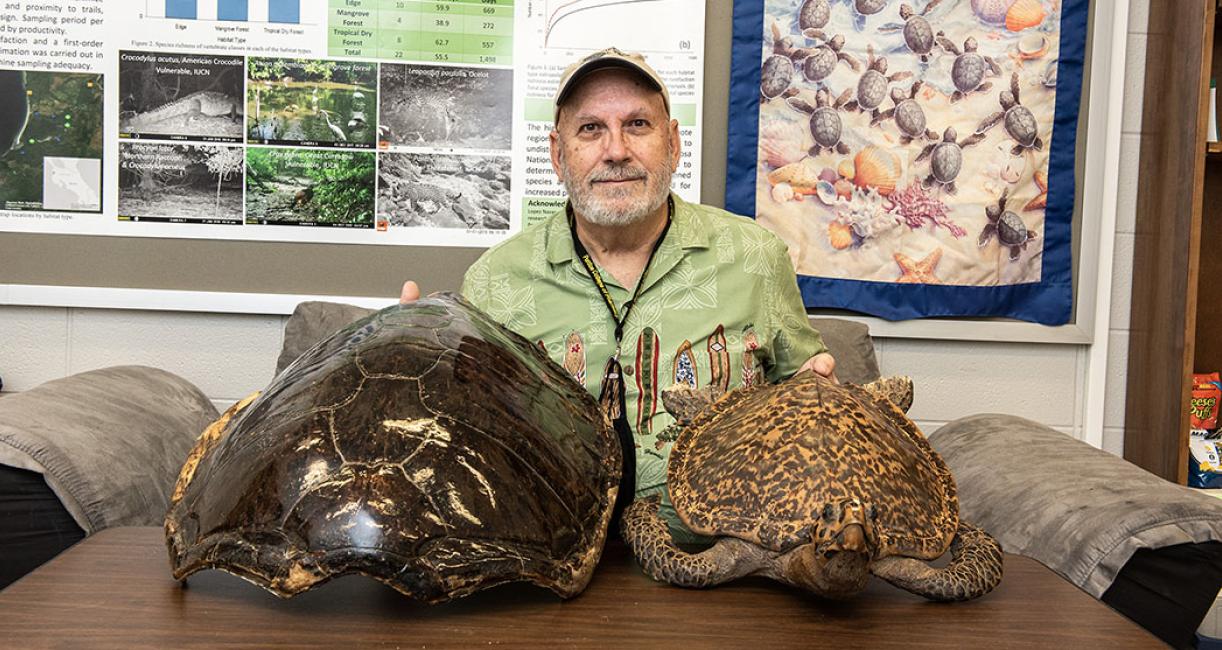

Marine biology earns concentration designation starting in fall
By Blake Sebring
May 30, 2023
According to Marinebio.com and Collegevine.com, more than 90 universities offer marine biology degrees, but fewer than 10 are “land-locked” in the middle of the country like Purdue University Fort Wayne.
Thanks mostly to the 1981 arrival of Frank Paladino, Jack W. Schrey Distinguished Professor of Biology, PFW has built a widely recognized program. He has watched his protégés spread across the world, pointing with pride to the shelf above his desk filled with research and thesis projects from former students.
A recent academic change is adding to the emphasis as this fall semester PFW will begin offering a bachelor’s degree in biology with a concentration in marine biology. The required coursework remains unchanged, but the graduating marine biologists will have the distinction noted on their diplomas.
“It allows them to market themselves when they leave here as having had a focus on marine biology,” Paladino said. “These kids want to go do marine biology, and when they are looking for graduate schools, those schools are looking to see if you took the prerequisites they want to get into their advanced program.”
Paladino said the process for the change started about four years ago and serves the students by making it easier to find their post-graduate opportunities.
The change might further emphasize the degree to attract more undergraduate students. Ben Dattilo, professor of geology who has taught at PFW since 2007, said he hopes more students will become interested in his oceanography course. Every two years, he leads a marine biology field study to San Salvador Island in the Bahamas.
“Bringing yourself out of the familiar and into the unfamiliar heightens your senses,” Dattilo said. “It makes you aware of things you might not see if you live there all the time. My thought philosophically from an educational standpoint is they come back to Indiana, and suddenly you see differences. It’s not always this way. This can lead to more questions, which are a little deeper than just memorizing for the test.”
Each year during spring break, Paladino takes undergrad and graduate students to study leatherback turtles in Costa Rica for a 10-day field lab. Paladino’s best estimate is that more than 1,700 students have taken part in the Costa Rica trip over the years, and that doesn’t include other field study trips to other countries around the world.
Marine biology is one of the cornerstones of the Department of Biological Sciences, and five years ago the Center for Marine Conservation and Biology was recognized as one of the university’s 13 centers of excellence. Paladino said, on average, PFW produces five-to-seven marine biology graduates each year.




